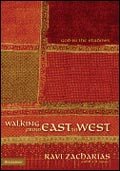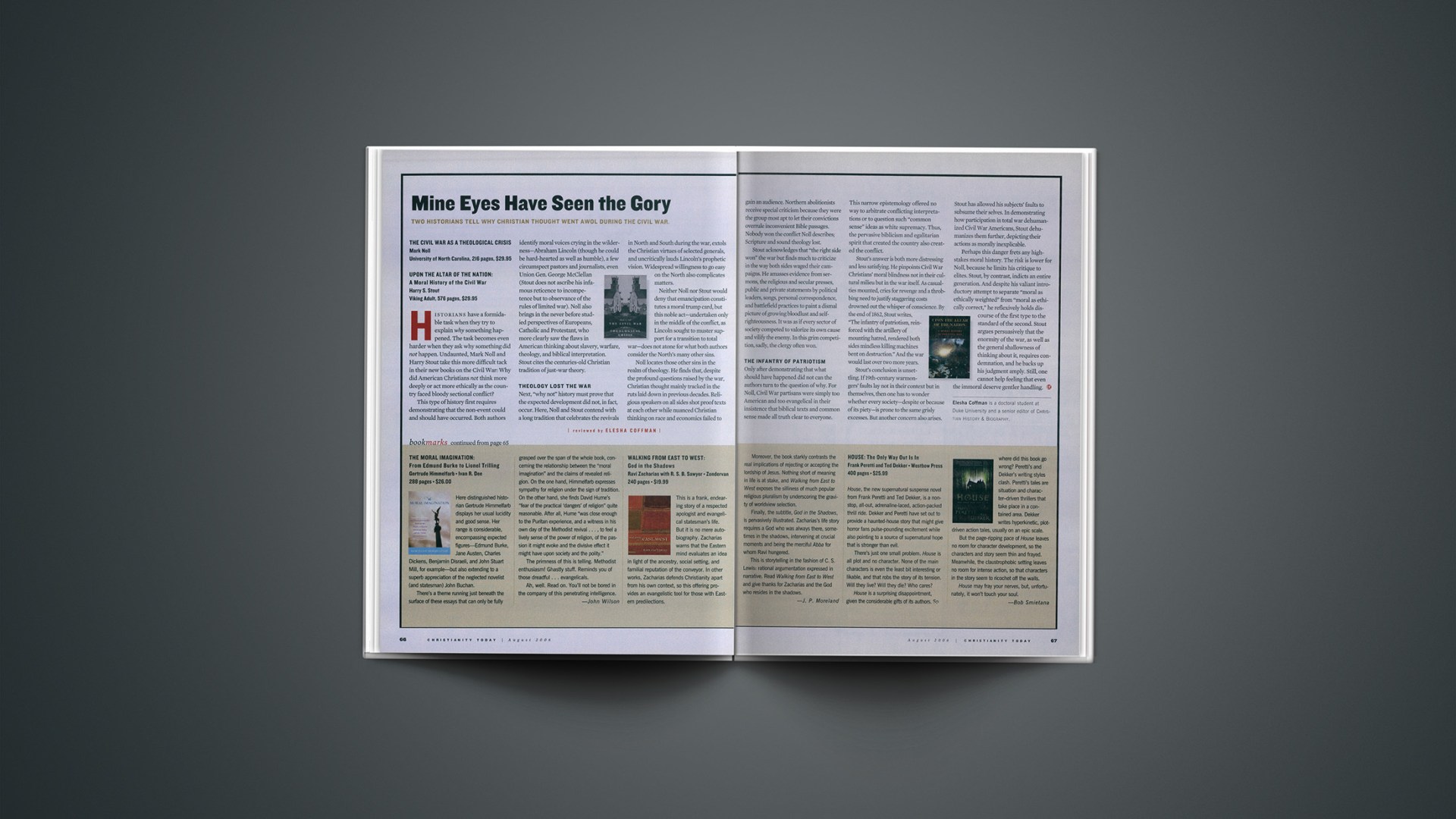This is a frank, endearing story of a respected apologist and evangelical statesman’s life. But it is no mere autobiography. Zacharias warns that the Eastern mind evaluates an idea in light of the ancestry, social setting, and familial reputation of the conveyor. In other works, Zacharias defends Christianity apart from his own context, so this offering provides an evangelistic tool for those with Eastern predilections.
 WALKING FROMEAST TO WEST:God in theShadowsby Ravi ZachariaswithR. S. B. SawyerZondervan240 pp.; $19.99 |
Moreover, the book starkly contrasts the real implications of rejecting or accepting the lordship of Jesus. Nothing short of meaning in life is at stake, and Walking from East to West exposes the silliness of much popular religious pluralism by underscoring the gravity of worldview selection.
Finally, the subtitle, God in the Shadows, is pervasively illustrated. Zacharias’s life story requires a God who was always there, sometimes in the shadows, intervening at crucial moments and being the merciful Abba for whom Ravi hungered.
This is storytelling in the fashion of C. S. Lewis: rational argumentation expressed in narrative. Read Walking from East to West and give thanks for Zacharias and the God who resides in the shadows.
Copyright © 2006 Christianity Today. Click for reprint information.
Related Elsewhere:
More about Ravi Zacharias is available from his ministry’s website.
Walking from East to West is available from Christianbook.com and other book retailers.
More information is available from Zondervan.
For book lovers, our 2006 CT book awards are available online, along with our book awards for 2005, 2004, 2003, 2002, 2001, 2000, 1999, 1998, and 1997, as well as our Books of the Twentieth Century. For other coverage or reviews, see our Books archive and the weekly Books & Culture Corner.










